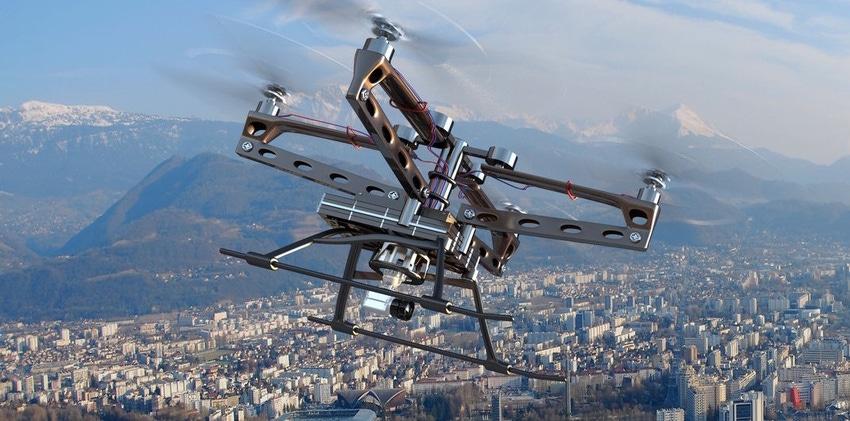BT wants an air corridor for drone testing
UK incumbent BT is keen to capitalise on all the drone hype, so it is leading a consortium that plans to set up the country's first commercial air corridor for testing drones.
December 15, 2020

UK incumbent BT is keen to capitalise on all the drone hype, so it is leading a consortium that plans to set up the country’s first commercial air corridor for testing drones.
It has teamed up with Altitude Angel, which specialises in unmanned traffic management (UTM), and a number of tech start-ups in order to prove that drones can safely operate in the same skies as traditional aircraft.
Called ‘Project Xcelerate’, the consortium is being funded by the government’s £125 million Future Flight Challenge initiative.
“As drone numbers continue to rise, there is an urgent need to safely integrate commercial drones into global airspace alongside manned aviation,” said Gerry McQuade, CEO of BT’s enterprise unit, in a statement. “In showing how drones can deliver improved, potentially life-saving services to the public, we’re aiming to accelerate the adoption of fully automated drones in unrestricted UK airspace in a safe and responsible way.”
According to ABI Research, annual revenue in the global drone market is set to grow from a $9.5 billion in 2020 to $92 billion by 2030, with the commercial sector accounting for 70 percent of that figure.
In the US, there are currently 1.7 million consumer drone pilots and 400,000 commercial drone pilots. In the EU, there are more than 1 million registered drone operators. China has 400,000. These are just the registered users; it doesn’t include the countless more ‘toy’ drones buzzing around.
ABI Research said the biggest use cases today are security and industrial inspection, while the fastest-growing use cases are around deliver, agriculture and emergency services.
In short: drones are here to stay, so the world better find a way of using them safely.
To that end, BT and its consortium partners want to establish an 8 km air corridor just south of Reading, and use it to try out various drone use cases. They include using drones to assist emergency responders in various scenarios, from road traffic accidents to search and rescue. The consortium also plans to demonstrate how drones can help healthcare providers speed up the delivery of urgent medical supplies. Project XCelerate will also show how drones can be used to carry out infrastructure inspection.
“BT’s role in the consortium is to bring world-leading drone expertise together and to provide the secure and resilient mobile network connectivity, as well as our drone detection services,” McQuade said. “The power of [BT-owned] EE’s 4G and 5G networks will ensure commercial drones remain connected for greater situational awareness, accurate positioning and to avoid collisions – ensuring that they can be operated safely and responsibly across UK skies.”
Based on its tests, the consortium hopes to establish a framework that will enable local authorities to safely open up their skies to commercial drones.
“From improved mobility, connectivity, healthcare and manufacturing output, to reduced road congestion and pollution, automated drone technology will transform the quality of our lives,” McQuade predicted.
About the Author(s)
You May Also Like









.png?width=300&auto=webp&quality=80&disable=upscale)

_1.jpg?width=300&auto=webp&quality=80&disable=upscale)


.png?width=800&auto=webp&quality=80&disable=upscale)